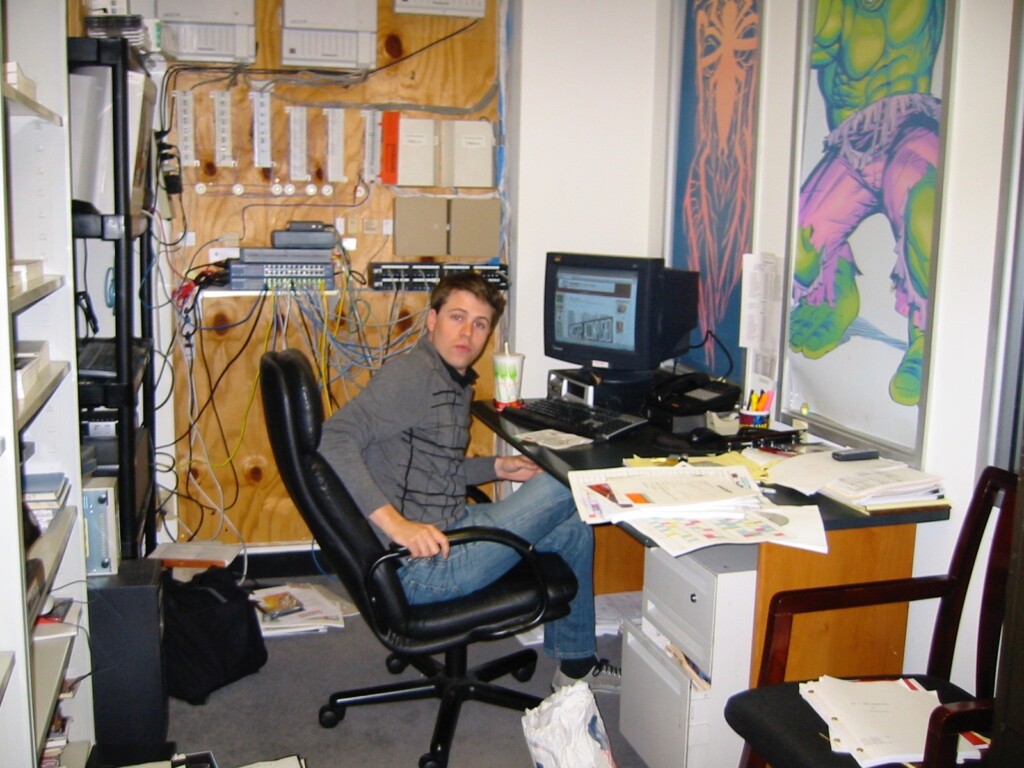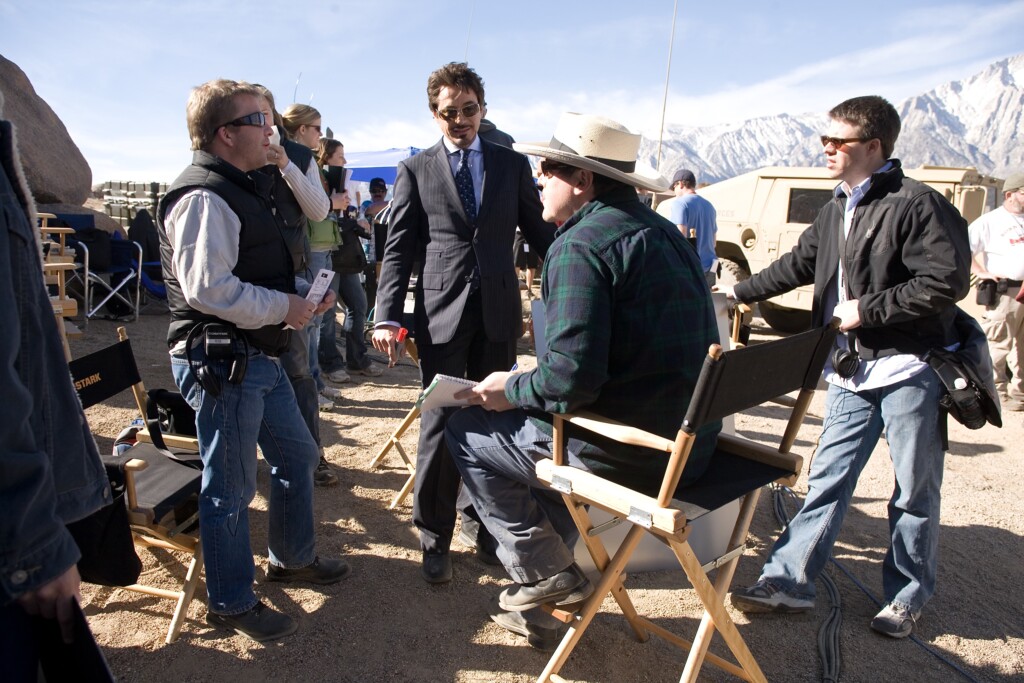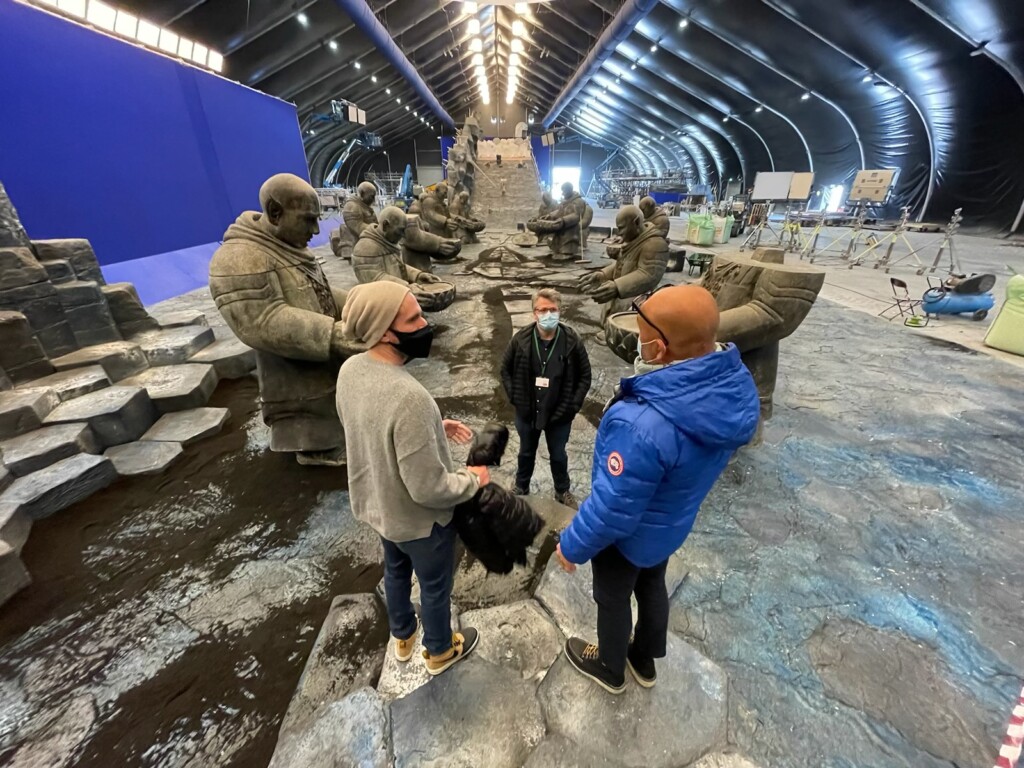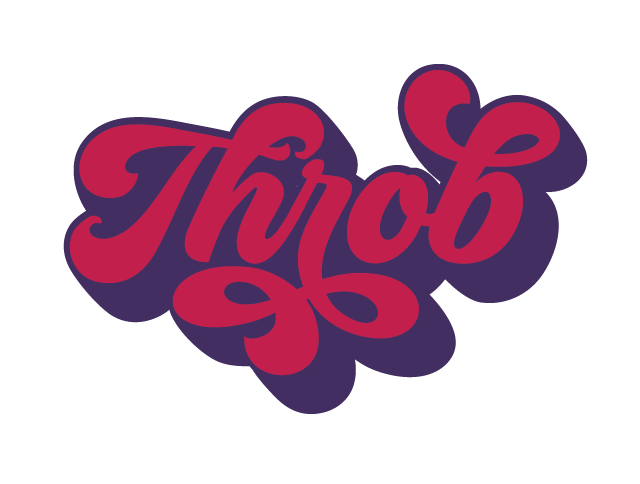Jeremy Latcham knows a thing or two about making blockbuster movies. As the producer behind hits like Iron Man, Guardians of the Galaxy, and Dungeons & Dragons: Honor Among Thieves, he’s helped shape some of the most memorable cinematic experiences of the past two decades. But what’s the secret ingredient that brings these larger-than-life stories to life? According to Latcham, it’s all about the music. In this exclusive interview with Throb, the veteran producer pulls back the curtain on the power of the perfect song and the alchemy of sound and vision that turns a good movie into a great one. From the iconic opening riff of “Back in Black” to the retro-rock deep cuts that made the Guardians soundtrack a surprise hit, Latcham shares his insights on the art and science of marrying music and film.
Jeremy always knew that he wanted to tell stories. After graduating from Northwestern University, he moved to LA and worked his way up in the entertainment industry, getting his big break in 2004 when he joined Marvel Studios as an assistant. Over his 13-year tenure there, Latcham quickly rose to become Senior Vice President of Production and Development, serving as an executive producer on blockbusters like Iron Man, Guardians of the Galaxy, Avengers: Age of Ultron, and Spider-Man: Homecoming. In 2017, he left to start his own production company, Latcham Pictures, which has produced films such as Bad Times at El Royale and Dungeons & Dragons: Honor Among Thieves.

Latcham’s first major film was Iron Man, a project that would teach him invaluable lessons about the role of music in storytelling. “Music in film is really critical,” Latcham says. “You can spend a lot of time on screen, showing a character, telling the audience who he is, what he cares about. That takes up a real amount of screen time and effort. Or, you can just play the right song, and then people will completely understand who this person is. Music shorthands so much.”
He points to the opening sequence of Iron Man as a prime example of the power of a well-placed needle drop. “Iron Man opens with ‘Back in Black.’ That decision set up the notion that Iron Man was a cool guy who played by his own rules and did his own thing. He’s kind of a loose cannon.” Latcham believes the song conveyed an attitude that defined the character from the first frame.
The combo of that AC/DC anthem and Robert Downey Jr.’s devil-may-care charisma in those opening scenes? Cinematic alchemy. “It just was an attitude,” Latcham affirms. “He’s in the back of the Humvee, with these army dudes, and he’s cracking jokes, and ‘Back in Black’ is playing… and then the Humvee blows to smithereens, and you cut to Tony Stark in a cave. That moment was really critical.”
But nailing those needle drops isn’t always easy. “We had made the film and were taking it to Comic-Con,” Latcham recounts. “We knew we needed “Iron Man” by Black Sabbath for the bit. Before Marvel, people didn’t really license music for Comic-Con type conventions.” However, getting the green light to actually use it proved to be a Herculean feat.
The problem? The price tag, hundreds of thousands of dollars. “Everybody at Marvel was like, this isn’t doable,” Latcham says. We can’t spend this kind of money on a comic convention on a Saturday in San Diego.”
But Latcham knew he had to go to bat for Sabbath. He remembers sitting in a meeting with the CEO, all of 26 or 27 years old, wearing a blue polo, nerdy glasses, and Chuck Taylors. “I was like, I don’t know how to say this,” he laughs. “If you put the Black Sabbath song in the piece, it’s cool. If you don’t, it’s not cool. That’s all I can tell you.”
Latcham’s instincts were spot-on. They got the song in the nick of time, and it killed at Comic-Con. “It worked, and it was great. All of a sudden, Iron Man is Iron Man,” he says.
Beyond needle drops, Latcham emphasizes the crucial role of a film’s score. “The score is as important, if not more important, and hard to get right, if not harder to get right, than placing good songs in movies,” he says.
The score for Iron Man one was particularly challenging to put together,” he says. Director Jon Favreau wanted a guitar-driven, rock-influenced score, a departure from the traditional orchestral fare. Composer Ramin Djawadi struggled to nail down the sound.
“It was hard; we just couldn’t quite put our finger on what [Favreau] was trying to do,” Latcham recalls. “Ramin was working out of Hans Zimmer’s camp at Remote Control Studios. One Saturday, there was a session with all the Remote Control guys. Ramin, Jablonski, and Hans Zimmer were there. People were playing electric buzzsaws. It was just the craziest stuff happening. But through that alchemy, the score started to come together.”
The final piece of the puzzle was guitarist Tom Morello of Rage Against the Machine fame. Morello, a friend of Jon Favreau, came in and played guitar over a large portion of the score. “Who knew all we needed was the greatest living guitarist in the world?” jokes Latcham. “We ended up with a really great sonic landscape for that film. Great needle drops and a great score; it all worked well emotionally. I walked away from that with a real understanding of how music is critically important.”

Latcham’s appreciation for the power of music in film only grew with his work on Guardians of the Galaxy, which features a beloved soundtrack of classic rock and pop songs. “Guardians was an extraordinary project,” he says. “The music in that film is as important as any character in the movie.”
Finding the right director for Guardians was a challenge, as Latcham met with 32 filmmakers who struggled to understand the unconventional premise. “I would say, there’s a tree, and he only says, ‘I am Groot.’ There’s a raccoon, he has a gun, and they’re best friends. The tree is gonna die, and you’re gonna cry. That’s the movie,” Latcham recalls. “People will be like, “Is there a Thor movie I can do? Like, what the heck are you talking about? That’s the stupidest thing I’ve ever heard.”
Everything changed when director James Gunn came on board and centered the story around a mixtape given to the main character, Peter Quill, by his mother. The tape, filled with songs from the ’60s, ’70s, and ’80s, became the emotional backbone of the film.
“Initially, James passed on the movie outright and said he didn’t want to do it,” Latcham says. “He left the meeting and then got stuck in traffic for, like, four hours. Somewhere in that four hours, he cracked the movie.”
Gunn sent Latcham a document with a 1980s Walkman on the front page, revealing how Quill’s mother had given him a mixtape of her favorite songs before she passed away. “Thank God, his mother just happened to have incredible music taste,” Latcham says. The songs are all really catchy, emotional, and familiar but not popular. That’s the best-case scenario for when a director sends you a screenplay with a lot of music.
With the soundtrack now integral to the story, Latcham’s job shifted from suggesting cool music to ensuring they could secure the rights to the songs and protect them from being cut. “My job became asking how we could get this music. I was talking to the music supervisor and the music department. I wanted to ensure we could get all these songs because now they’re so integral to the story we’re telling. I knew we had a winner,” he explains.
The Marvel Studios Creative Committee wasn’t so sure. The soundtrack was presented to the powers that be during the editing process, but it didn’t get the positive reception he had anticipated. “They just hated it. They truly thought the soundtrack was terrible,” Jeremy says. They didn’t get it. They wanted to add 90s music, stuff that didn’t make sense for Peter’s mom. There was so much back-and-forth on the music.”
In the end, Latcham prevailed, and the soundtrack went on to sell 2.5 million copies. It was the first soundtrack album consisting entirely of previously released songs to top the Billboard 200 in history. It not only resonated with audiences but also introduced a new generation to classic tunes. “After the movie came out, all those songs charted again,” Latcham says. “All these great classic songs that people had kind of forgotten about or maybe never heard of, all of a sudden, they’re back in the zeitgeist.”
Latcham credits director James Gunn’s vision and the work of music supervisor Dave Jordan for the soundtrack’s success. “James had a really clear idea of what he wanted the movie to feel like and what he wanted the movie to sound like. He built the greatest soundtrack you could ever imagine for a film. It really cemented what movies and music can do when they work together. And Dave Jordan, he’s a force of nature. He knows everybody in the music industry. He picks up a phone and makes things happen,” he says. “Between James and Dave, they just crushed it.”
For Latcham, the Guardians soundtrack exemplifies the emotional power of music in film. “It’s just a really beautiful example of how a filmmaker can use music to tell a story and make the audience feel so many things,” he says.
Latcham made his first trip to the studio to cut tracks for the neo-noir thriller Bad Times at the El Royale. He collaborated with legendary music producer Harvey Mason Jr. and witnessed actress Cynthia Erivo’s incredible vocal talent in the recording studio.
“Cynthia sings several times throughout the film, so we knew we needed tracks so her voice wouldn’t get exhausted. It was a truly inspiring process to watch. She has such amazing vocal control. She did a final take after they’d worked through the track, and it was literally pitch-perfect—every single note, every single breath, every tempo, and all these technical things that I can’t even comprehend. She laid it down, and it was perfect.”
That final track was on the one they ended up using. Harvey Mason Jr.’s reaction underscored the rarity of Erivo’s talent.” He was like, ‘Jeremy, I don’t think you understand. I do this for a living, and no one can do that. No artist today does that, like that.'”
“It was really cool to watch the genesis of who she would become as a film star in that recording booth. I remember going to the set in Vancouver after we’d recorded all those tracks, and I felt very confident that she was going to be incredible in the movie, and she was. It’s just another great example of building a character through music. It’s really wild how important music is to a movie.”

One of Latcham’s latest projects, Dungeons & Dragons: Honor Among Thieves, presented a new challenge in terms of integrating music into the storytelling. “D&D was a really fun project because it’s a fantasy world, and we wanted the music to feel epic and adventurous but also modern and fresh,” he explains.
To achieve this, Latcham and his team turned to composer Lorne Balfe, known for his work on films like Mission: Impossible – Fallout and Bad Boys for Life. “Lorne is just an incredible talent,” Latcham says. “He has this way of creating these huge, sweeping themes that transport you to another world.” Balfe’s score for Dungeons & Dragons blends traditional orchestral elements with modern electronic sounds, creating a unique sonic landscape that complements the film’s mix of humor, heart, and high-stakes action.
Latcham’s insights underscore the vital role music plays in the filmmaking process. “People think of film as a visual medium, and it is,” he says. “But so much of the way the audience knows how to feel comes from how we influence the audience’s emotions using music. So much work goes into finding the perfect song and then clearing it, composing a really great score – there are so many moving parts and pieces of the puzzle that any number of things could go wrong, but when you get it right, man, there’s nothing like it.”
Connect with Jeremy:
- Twitter/X: : @jlatcham


